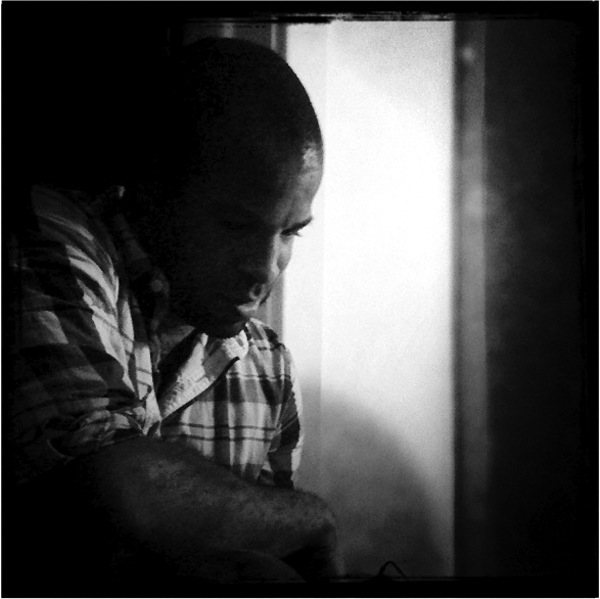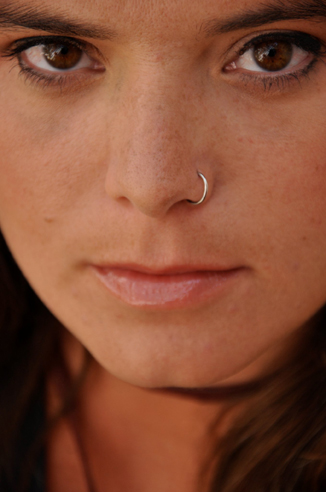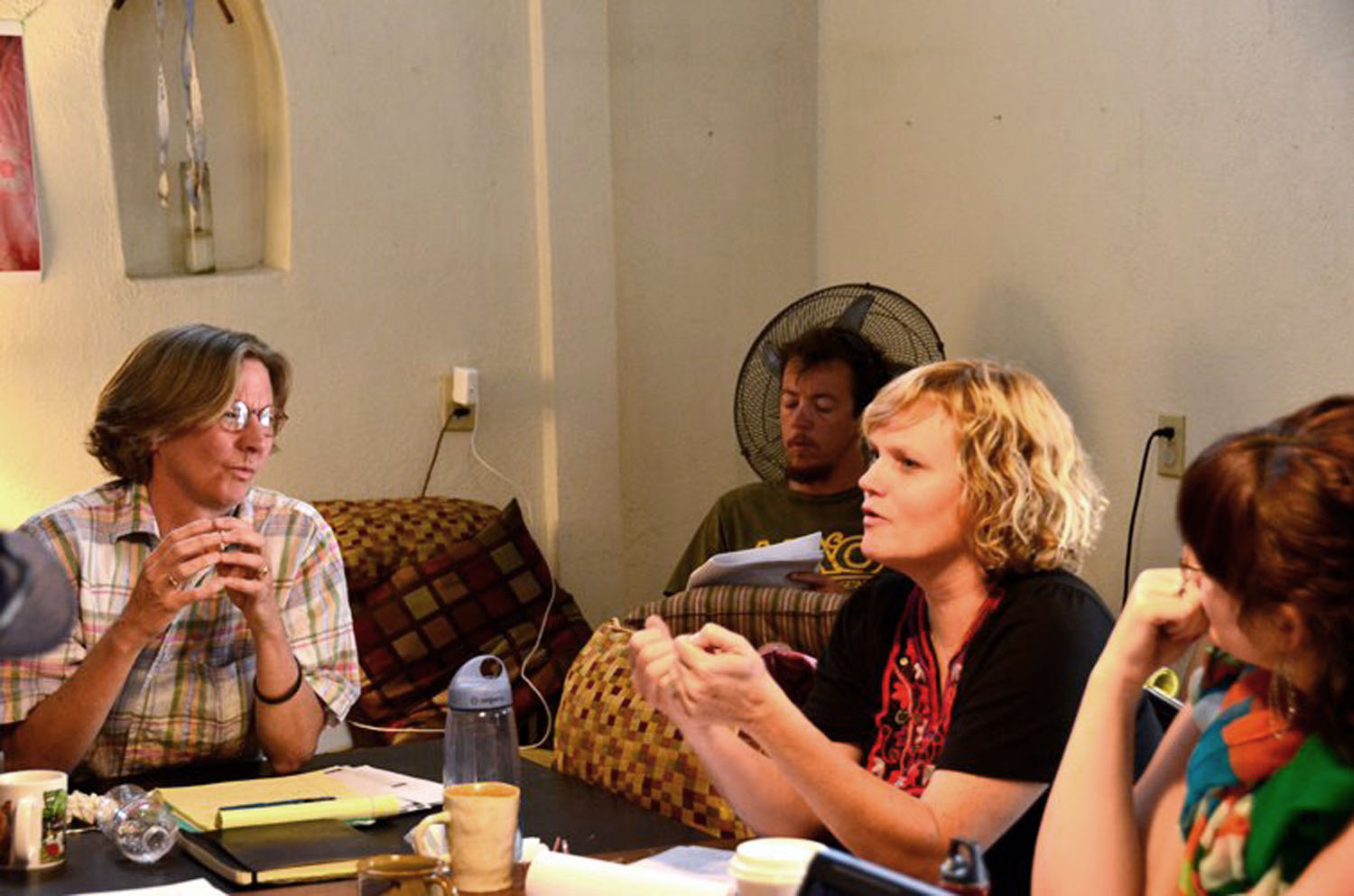In November, P&W-supported writer Douglas Kearney gave a reading at The Art League and led a workshop at Project Row Houses in Houston, which he writes about below. Kearney is a poet/performer/librettist based in Southern California’s Santa Clarita Valley, where he lives with his family and teaches at California Institute of the Arts. His second collection, The Black Automaton (Fence Books 2009), was a National Poetry Series selection. Red Hen Press will publish Patter in 2014.
 Back in April, I had a Skype exchange with poet/activist John Pluecker and a poetry group he led at Project Row Houses in Houston’s Third Ward. It went well enough that JP decided to get me down there to do a reading and workshop. Cool. I hadn’t been to Houston in a minute and hadn’t done much touring in the South to promote The Black Automaton. He was awarded funds from the Readings/Workshops program, which, with help from Project Row Houses, was enough to fly me down and provide a stipend. The reading was slated for Kaboom Books and the workshop, for Project Row Houses. Straightforward. But. BUT! It just so happened Houston was a great big X on the African-American Arts treasure map on November 16, 2012. Contemporary Arts Museum Houston was opening “Radical Presence: Black Performance in Contemporary Art” and The Art League was opening STACKS, a group exhibition of emerging artists curated by Robert Pruitt for five week-long residencies.
Back in April, I had a Skype exchange with poet/activist John Pluecker and a poetry group he led at Project Row Houses in Houston’s Third Ward. It went well enough that JP decided to get me down there to do a reading and workshop. Cool. I hadn’t been to Houston in a minute and hadn’t done much touring in the South to promote The Black Automaton. He was awarded funds from the Readings/Workshops program, which, with help from Project Row Houses, was enough to fly me down and provide a stipend. The reading was slated for Kaboom Books and the workshop, for Project Row Houses. Straightforward. But. BUT! It just so happened Houston was a great big X on the African-American Arts treasure map on November 16, 2012. Contemporary Arts Museum Houston was opening “Radical Presence: Black Performance in Contemporary Art” and The Art League was opening STACKS, a group exhibition of emerging artists curated by Robert Pruitt for five week-long residencies.
JP has his finger on the pulse of such things and wondered whether we might be able to tap in to the visual arts audiences and more of the African-American folks he hoped would come to my reading at Kaboom. So, with a week to go before the reading, hatched a plan, he did. He asked Kaboom whether they might be willing to give me up that evening. With their gracious permission, he contacted Pruitt about creating some kind of collaboration that would allow me to join the Art League artists for their opening. With his enthusiastic blessing, JP contacted me. It happened I know Pruitt’s work from a commission connected to Studio Museum in Harlem’s 2005–6 Frequency show.
So, yeah, I was interested.
The Art League opening, which featured artists Jamal Cyrus, Nathaniel Donnett, Autumn Knight, Phillip Pyle II, and M'kina Tapscott, involved a woodchipper and the woodchipper’s effect on objects that signify Blackness®. We decided I would perform eulogies for some of these objects. I thought it would be a nice processual kick in the behind to compose new work for the occasion. After all, preachers don’t get much time to write them. Ultimately, I eulogized a pair of sneakers, an afro pick, a box of Nag Champa, some bootleg t-shirts with hip hop memes on them, and a Malcolm X X-hat. You can see the ceremony here.
The next afternoon, I did a more traditional reading (with digital projector and audio) at Project Row Houses and then launched into a workshop with JP’s group, about twenty strong. The workshop—Unsung & Remixed: Using Song Lyrics in Poems—continued the multimedia/interdisciplinary theme of the visit, directing participants to write poems using Afaa Michael Weaver’s Bop form; integrate parodies of a song they were sick of; or compose a “cover” of a song they loved. An eight-year-old brought the house down and a sixty-something-year-old built it back up.
The Readings/Workshops program in conjunction with a coalition of Houston’s arts community made a fantastic trip possible. Excellent! Plus, I got to eat BBQ. Y’all need a Readings/Workshops/BBQ program. Trill.
Photo: Douglas Kearney. Credit: Eric Plattner.
Support for Readings/Workshops events in Houston is provided by an endowment established with generous contributions from the Poets & Writers Board of Directors and others. Additional support comes from the Friends of Poets & Writers.





 Back in April, I had a Skype exchange with poet/activist John Pluecker and a poetry group he led at
Back in April, I had a Skype exchange with poet/activist John Pluecker and a poetry group he led at  What makes your organization and its programs unique?
What makes your organization and its programs unique?  How do you find and invite writers?
How do you find and invite writers?